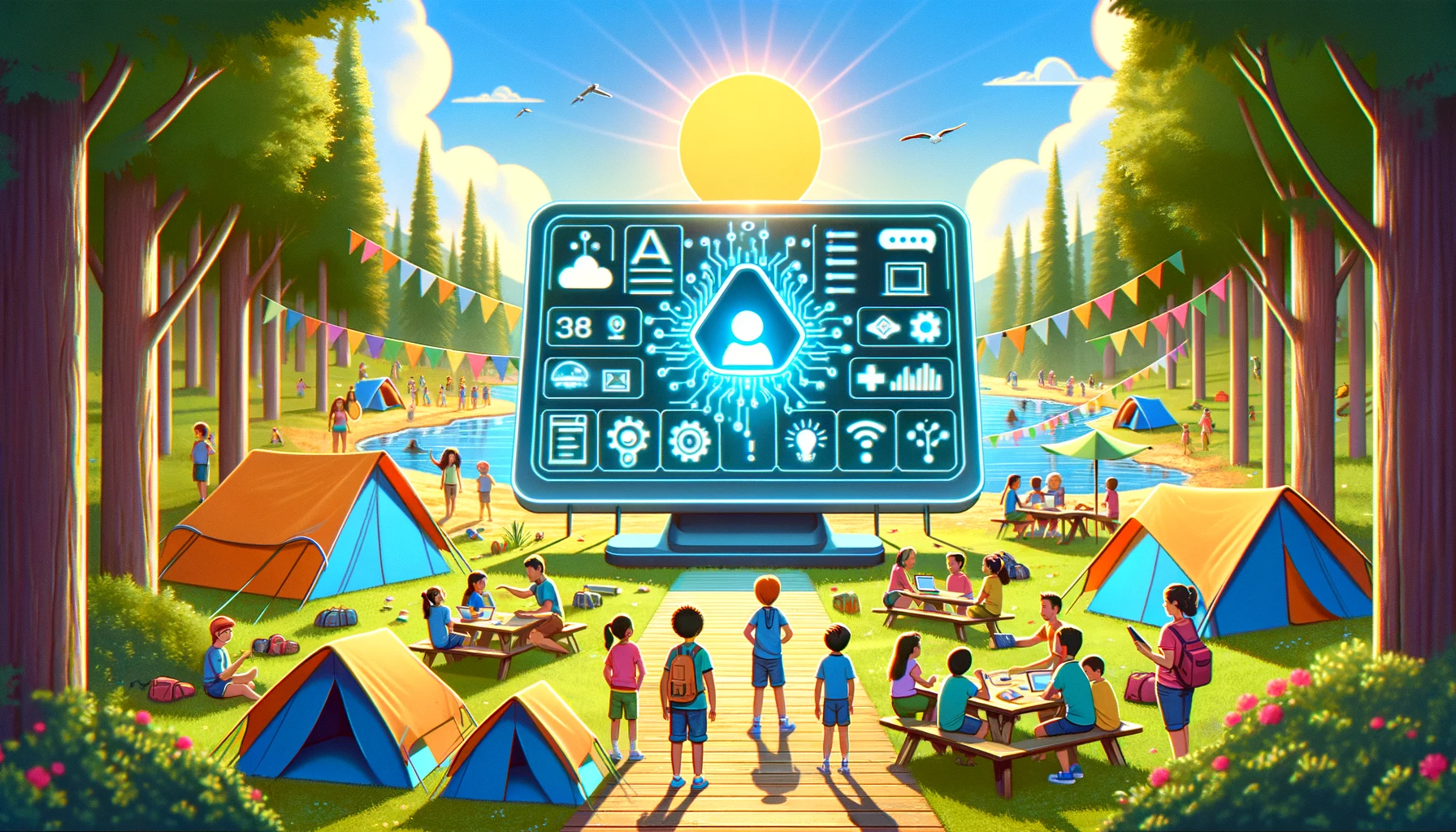Summer camps stand at a unique intersection of tradition and innovation. One such innovation is artificial intelligence (AI), which encompasses tools that can redefine administration, communication, and programs. When you leverage AI for summer camp management, you’ll see improvements that follow other industries’ shift towards a more data-driven, creative, and efficient approach. AI innovation moves quickly and is now an indispensable tool that offers solutions camps can implement immediately.
AI Seach Tools in the Camp Environment
AI-driven search tools like Perplexity significantly reduce time spent on tasks while providing insightful data and improving decision-making processes. Perplexity improves the traditional web search experience. It compiles information from across the web and presents a summarized response, including citations.
For camp staff, this means faster and more accurate access to information, whether health and safety protocols, innovative camp activities, or the latest educational trends.
Large Language Models in the Camp Environment
AI applications like ChatGPT and Claude are large language models (LLMs). These computer programs have been trained on a massive collection of text from the internet—everything from novels in the public domain and news articles to blog posts and academic papers. By analyzing this information, LLMs learn to predict and generate human-like text for writing, researching, or solving problems through dialogue.
Camp staff can use these AI tools to analyze past social media engagement data and determine what content resonates most with a specific audience. Then, use these insights to schedule posts, generate engaging captions, and select images that are likely to increase engagement.
For AI-enhanced email content creation, AI tools can analyze past email performance to identify which topics, tones, and formats have resonated most with an audience. Using this insight can help staff draft emails that are more likely to engage readers, from captivating subject lines to content that speaks directly to their interests and needs.
LLMs can assist in creating weekly menu plans that accommodate various dietary requirements and preferences. Input existing menus, feedback, and dietary needs, and AI can suggest meal plans that cater to a variety of restrictions, while also introducing new, nutritionally balanced meals that appeal to campers’ tastes.
Overcome Challenges and Embrace AI
Despite the benefits, the transition to leverage AI for summer camp management comes with challenges. Resistance to change, budget constraints, and the digital divide are hurdles to overcome. The good news is that AI tools are becoming more accessible and affordable. Free versions of powerful AI tools, like the basic version of Perplexity, provide a taste of the potential benefits without initial investment.
To overcome reluctance, camps can start small. Implement AI solutions in one area and gradually expand as comfort and familiarity grow. When camp leaders encourage a culture of innovation and continuous learning, staff and campers will adapt to, and embrace new technologies.
Look Ahead: The Future of AI in Summer Camps
As we look to the future and the need to leverage AI for summer camp management, these tools will likely become the norm rather than the exception. The rapid advancements in AI technology mean that new tools and applications are continually emerging, each with the potential to further streamline operations, enhance learning experiences, and create a safer, more engaging camp environment.
However, staying informed and up-to-date with these developments is crucial. Here at Campminder, we have a dedicated team member who oversees AI enablement. Camps should designate a team member passionate about technology to explore new AI opportunities. Even as a portion of that person’s tasks, they can share knowledge and drive implementation. This approach ensures that camps can continually leverage AI to improve their programs, operations, and overall camper experiences.
The Right Balance
The 80/20 rule for AI suggests that artificial intelligence tools can efficiently complete 80% of a task, leaving the remaining 20% to be refined and finalized by humans. This concept highlights AI’s role as a powerful assistant that can handle the bulk of the work. Use it to generate initial drafts, analyze data, or provide recommendations. Human insight, creativity, and decision-making are crucial for the remaining 20% (usually 15% at the start and 5% at the end). This balance ensures that the outcome meets the highest standards and accurately captures a camp’s brand and voice.
This synergy between AI and human effort aims to maximize productivity and effectiveness, leveraging the best of both worlds.
The Impact of AI on Summer Camp Management
With the help of AI, summer camps can transform their operations, better meet the needs of their campers, and ensure a memorable, enriching camp experience for all. AI tools like the ChatGPT Plus and Team subscriptions are akin to adding a staff person for around $20-$30 per month, which is a great return on investment.
The automation of routine tasks allows camp directors to allocate more time to strategic planning and personal interaction with campers and staff. AI can also provide predictive insights, helping camps anticipate needs, prevent problems, and tailor programs to camper interests and developmental stages.
From streamlined email correspondences to enhanced social media engagement, AI tools can help maintain a constant and personalized connection with the camp community, fostering a sense of belonging and involvement.
With AI, camps can step into a future where technology and tradition coexist.
